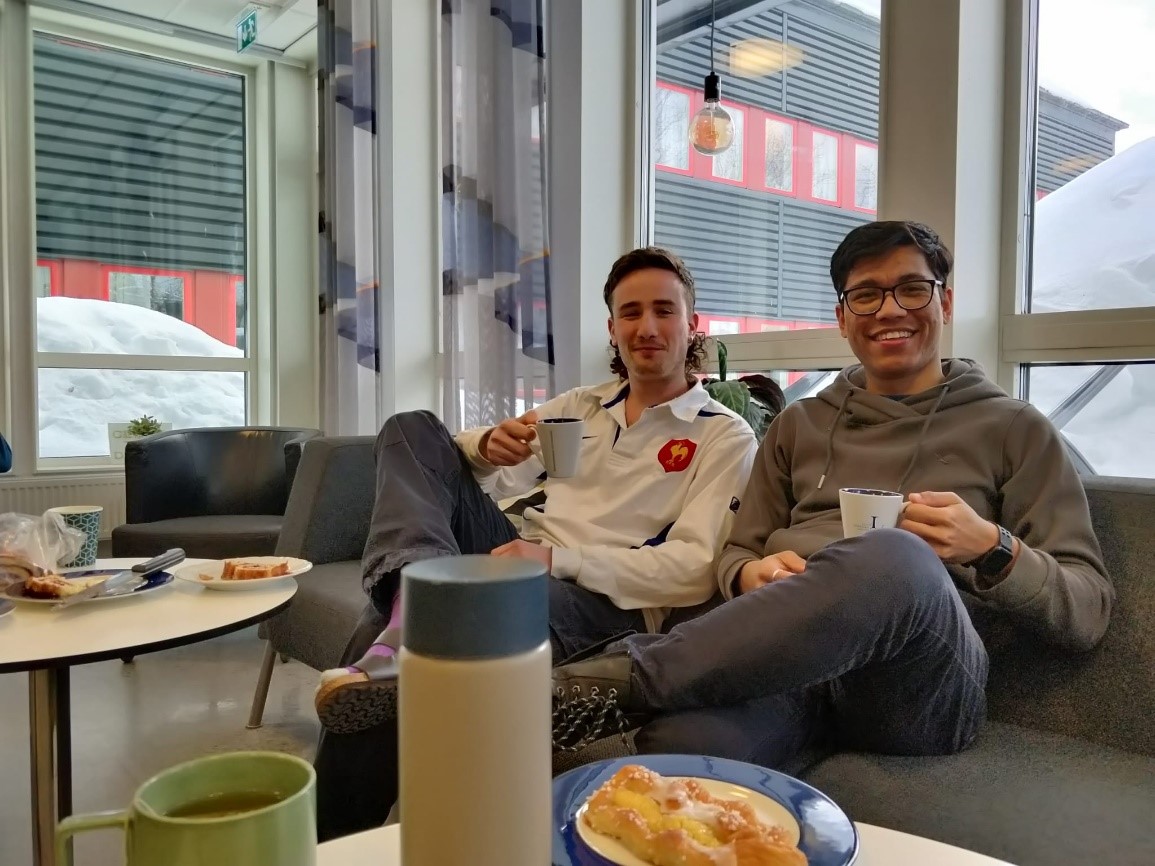Fika (pronounced fee-ka) is a Swedish coffee break ritual. Swedes sit twice a day, about 10 a.m. in the morning and 3 p.m. in the afternoon. Fika is a Swedish word that roughly translates to “coffee and cake,” but it doesn’t quite capture the essence of the concept. “Fika” is an important component of socializing and maintaining a state of relaxation during the day and between jobs in Sweden, and you do not need to book it in your calendar.
In a nutshell, fika means ‘leaving your work behind and recharging your batteries.’
If you want to explore more about the essential Swedish ritual fika, there is a six-part web series (by Fabian Schmid) online. It is a way of life for some people, an institution for others, and a religion for others; it means different things to different individuals. But one thing is certain: in Sweden, it is a must for a healthy work-life balance.
People were advised to work from home when the covid-pandemic was at its peak, as they would be unable to randomly bump into someone or interact. Despite the pandemic, the Swedes continued to have fika with their coworkers, friends, and family (if in person, following the regulations in keeping the distance). They coined the term “virtual fika,” in which you sit in front of your camera with coffee, cake, and other refreshments and participate in fika.
Personally, I was astounded by the Swedish affection for fika. It not only gives you a respite from work, but it also improves your work efficiency by allowing you to refresh your thoughts for a few minutes. Furthermore, several studies have shown that it can significantly improve the bonding between colleagues in the workplace. Morley et al. [1] brilliantly discusses the fika and its role in today’s academic environment.
‘Fika allows my PhD students to communicate with me more freely and openly about project-related and, more significantly, personal matters. So that I may assist my students in any way I can,’ says Nazanin Emami, professor at Lulea University of Technology’s Division of Machine Element.
As an early-stage researcher, I can discuss my spontaneous project ideas with my colleagues and supervisor, discuss lab concerns, express my opinions on current events, cooperate with other colleagues, keep updates on other projects and and so on. This not only provides me an idea of what’s going on in the industry, but also about my colleague’s innovation and progress. Everything starts with fika and follows the formal protocol, whether it’s trying a new test approach or purchasing a new equipment for the lab. I find that having a moment of freshness helps me figure out where I am with my project. It can also enable your thought process to be redirected to a certain problem. Therefore, it helps to strengthen our relationship as colleagues.
References:
[1] Louise Morley, Petra Angervall, Caroline Berggren & Susanne Dodillet (2018) Re-purposing fika: rest, recreation or regulation in the neoliberalized Swedish University?, European Journal of Higher Education, 8:4, 400-414, DOI: 10.1080/21568235.2018.1458637

This article was written by Dilesh Raj Shrestha as part of an ongoing series of scientific communications written and curated by BioTrib’s Early Stage Researchers.
Dilesh is researching the Development of 3D-printable, self-lubricated polymer composites with improved wear resistance for total joint replacement at Luleå University of Technology, Sweden.

